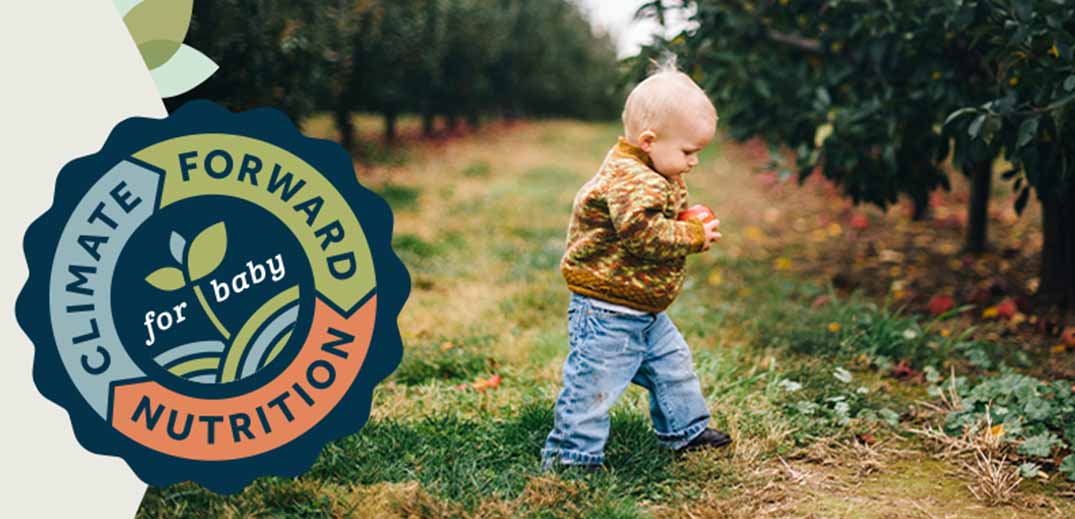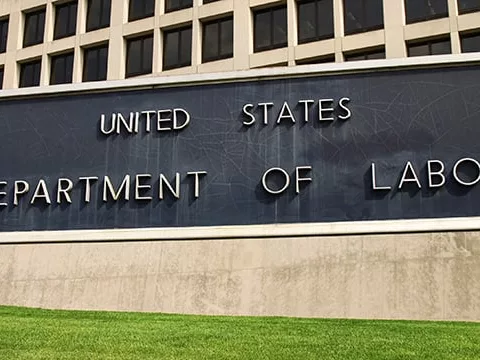ARLINGTON, V.A., July 15, 2021 – As part of this ambition, Gerber has also committed to carbon neutrality across its baby food portfolio by 2035 through collaboration with a third-party carbon neutral certifier, with 100% of its Organic portfolio and Natural pouches and glass jars set to be carbon neutral in 2022. Gerber is the first U.S. company to announce its commitment to produce carbon neutral baby food products, representing the most ambitious climate commitment in the industry, and the integration of Gerber’s long-standing sustainable practices and new innovations that will reduce the company’s greenhouse gas emissions in the U.S.
“For generations, Gerber has been committed to doing anything for baby, including taking action to help protect the planet, so babies can grow and thrive for years to come,” said Tarun Malkani, President and CEO at Gerber. “The commitment we make today is the start of the next chapter in elevating the choices we give parents who are seeking food that is good for baby and good for the planet, harnessing the next generation of regenerative farming and sustainable business practices. Our commitment to carbon neutrality is an important step in our climate journey, which will continue beyond 2035.”
Gerber is providing the first ever carbon neutral baby food donation, contributing $100,000 worth of products to families served by the Feeding America® network to prioritize access to both nutritious and climate conscious baby food for communities facing hunger. As its longtime partner for addressing food insecurity, Gerber has partnered with Feeding America since 1988, investing more than $2.8M in 2020.
“Nutritious food is critical to a child’s development. A potential 13 million children are at risk of being food insecure this year, a number that has been exacerbated by the pandemic,” said Blake Thompson, Chief Supply Chain Officer at Feeding America. “Feeding America is proud to partner with Gerber to help provide nutrient-dense food to children and families when they need it most.”
Gerber will reach carbon neutrality by implementing practices across several priority areas: regenerative agriculture, packaging, manufacturing and supply chain management, and recipe design, and by investing in high quality offsetting projects.
Key initiatives in Gerber’s sustainability and carbon neutrality roadmap include:
- Creating fruit and vegetable research farm demonstration plots in Western Michigan where Gerber partners with the nonprofit Rodale Institute and Michigan State University to conduct unprecedented research in innovative technologies and advanced regenerative organic farming practices focused on replenishing soils, increasing biodiversity and evaluating the potential for nutritional benefits.
- Optimizing energy use and sourcing 100% renewable electricity for our own manufacturing facilities and distribution centers by 2025.
- Progressing our ambition to make 100% of our packaging recyclable or reusable by 2025 and continuing to reduce or eliminate unnecessary packaging material where possible.
- Advancing continuous improvement with Gerber farmers, or “Gerber Growers,” and documenting adoption of regenerative farming practices through data verified by Sustainable Environmental Consultants’ EcoPractices® platform.
- Assessing environmental impact as part of all new product innovations and introducing more products with plant-based protein across Gerber’s Baby Food portfolio.
- Planting one million trees in partnership with the National Forest Foundation and One Tree Planted in U.S. National Forests across 10 states.
“Climate change affects us all – especially the very young – and we are proud to partner with Gerber to help realize their climate goals,” said Franziska Sinner, Head of Corporate Sustainability at South Pole, the leading carbon project and climate solutions provider, which conducted a baseline carbon footprint assessment for the brand and suggested ways to lower the organization’s emissions. “Gerber’s commitment to implementing sustainable practices throughout the product lifecycle – from farm to table via low carbon supply chains – is visionary and has the power to inspire bold environmental action from other organizations.”






